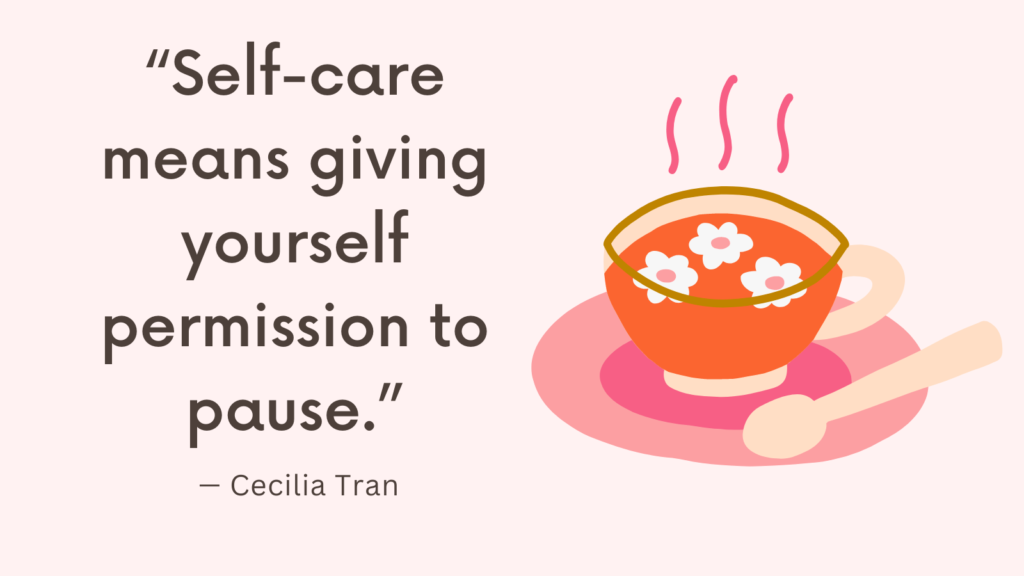In this post, you’re going to learn all about caregiver personality traits.
What Is Caregiver Personality?
Caregiver personality refers to a set of behavioral and psychological traits that are commonly observed in individuals who take on the role of caregiving.
These traits are often developed and shaped through personal experiences, upbringing, and social interactions.
Caregiver personality encompasses various characteristics that influence how caregivers approach their responsibilities, interact with care recipients, and cope with the challenges and demands associated with caregiving.
In the DSM-5 (Diagnostic and Statistical Manual of Mental Disorders, 5th Edition), there is no specific diagnosis or category referred to as “caregiver personality.”
Related: Caregiving vs Caretaking (The Savior Complex)
Caregiver Personality Traits
Here’s an overview of caregiver personality traits that are commonly associated with individuals who assume the role of caregivers.
It’s important to note that these traits can vary among individuals, and not all caregivers possess the same combination of characteristics.
1. Empathy and Compassion
Caregivers often exhibit high levels of empathy and compassion towards those they care for.
They have the ability to understand and share the emotions of others, enabling them to provide emotional support and reassurance.
2. Patience
Caregiving often requires patience, as caregivers may need to deal with challenging behaviors, physical limitations, or cognitive impairments of the person they are caring for.
A patient caregiver can create a more calming and supportive environment.
Related: How To Become A Stronger Empath? Top 20 Actionable Empathy Exercises to Become More Empathetic
3. Adaptability
Being able to adapt quickly to changing situations is crucial for caregivers.
They may encounter unexpected challenges, medical emergencies, or changes in the care recipient’s condition.
An adaptable caregiver can adjust their approach and problem-solve effectively.
4. Resilience
Caregiving can be emotionally and physically demanding, leading to feelings of stress and fatigue.
Resilient caregivers are better equipped to face these challenges, bouncing back from setbacks and finding ways to maintain their own well-being.
Related: Top 9 Highly Sensitive Person Coping Strategies [HSP’s Survival Guide]
5. Organization and Time Management
Successful caregivers often possess strong organizational skills and are proficient in managing their time effectively.
Juggling various responsibilities, appointments, and tasks requires careful planning and prioritization.
6. Selflessness
Caregivers often prioritize the needs of others above their own.
They demonstrate selflessness by dedicating their time and energy to meet the physical, emotional, and social needs of the care recipient.
7. Problem-Solving Skills
Caregiving involves making decisions and solving problems on a daily basis.
Effective caregivers have the ability to think critically, gather information, and find practical solutions.
Related: Top 23 Jobs For Highly Sensitive People
8. Emotional Stability
Caregivers may encounter emotionally challenging situations, such as witnessing the decline or suffering of the person they care for.
Emotional stability allows caregivers to remain calm and composed during difficult times, while still providing support and care.
It is worth mentioning that while possessing some or all of these traits can be beneficial, caregivers can also experience difficulties and emotional strain.
9. Communication and Listening Skills
Effective communication is vital in caregiving roles.
Caregivers with good communication and listening skills can establish rapport, understand the care recipient’s needs, and coordinate with other healthcare professionals if necessary.
It is essential for caregivers to prioritize self-care, seek support from others, and reach out to professional help when needed.
Related: How To Validate Someone’s Feelings Without Agreeing? (+Examples of Validating Statements)
What Is Caregiver Burnout?
Caregiver burnout, also known as caregiver stress or caregiver syndrome, refers to a state of physical, mental, and emotional exhaustion that can occur among individuals who provide care to others.
It typically arises when caregivers neglect their own needs while devoting significant time and effort to the well-being of a loved one or care recipient.
Caregiver burnout is a common phenomenon experienced by many caregivers and can have significant negative impacts on their own health and well-being.
Related: Compassion Fatigue Self Test
Signs of Caregiver Burnout
Some common signs and symptoms of caregiver burnout include:
1. Physical exhaustion: Persistent fatigue, sleep disturbances, and reduced energy levels are often experienced by burnt-out caregivers, due to the physical demands and stresses associated with caregiving.
2. Emotional distress: Feelings of sadness, irritability, anxiety, and frustration may arise as caregivers become overwhelmed and face constant pressure. They may also experience mood swings or a sense of helplessness.
3. Social withdrawal: Burnt-out caregivers may isolate themselves from social activities or relationships due to limited time, increased responsibilities, or feeling emotionally drained. This isolation can lead to further feelings of loneliness and disconnection.
4. Decreased personal well-being: Neglected self-care can result in a decline in the caregiver’s overall well-being. This includes neglecting their own physical health, hobbies, interests, and social connections.
5. Cognitive difficulties: Caregiver burnout can affect cognitive functions, leading to difficulties with concentration, memory, decision-making, and problem-solving.
6. Increased health problems: The chronic stress associated with caregiving can contribute to the development or exacerbation of physical health issues, such as headaches, gastrointestinal problems, weakened immune system, or chronic pain.
Related: 5 Stages of Compassion Fatigue

How to Cope with Caregiver Burnout?
Coping with caregiver burnout is essential for maintaining your own well-being and ensuring you can continue to provide care effectively.
Here are some evidence-based strategies to help you cope with caregiver burnout:
1. Prioritize self-care
Caregivers often neglect their own needs while focusing on the well-being of others.
However, practicing self-care is crucial for your physical, mental, and emotional health.
Make sure to eat well-balanced meals, exercise regularly, get enough sleep, and engage in activities you enjoy.
Taking care of yourself enables you to better care for others.
2. Seek support
Reach out to family members, friends, or support groups who can offer understanding, empathy, and assistance.
Share your feelings and experiences with trusted individuals who can provide a listening ear or practical help.
Consider joining caregiver support groups where you can connect with others who are going through similar experiences.
Professional counseling or therapy can also be beneficial in navigating the challenges of caregiver burnout.
Related: Top 45 Self Care Day Ideas at Home To Kickstart Your Self Care Ritual
3. Set realistic expectations
Recognize that you cannot do everything and that it’s okay to set realistic limits.
Prioritize tasks, learn to say no when necessary, and delegate responsibilities to others.
Understand that you’re only human and that it’s alright to ask for help and support.
Adjusting your expectations can help reduce feelings of guilt or overwhelm.
4. Utilize community resources
Explore available community resources that can assist with caregiving duties.
Local organizations or government agencies often provide services such as respite care, where trained professionals temporarily relieve caregivers to give them a break.
Investigate adult day care centers, home care services, or meal delivery programs that can alleviate some of your responsibilities.
5. Take regular breaks
It’s essential to take regular breaks from caregiving to recharge and rejuvenate.
Schedule time for yourself, even if it’s just a few hours each week, to engage in activities that bring you joy and help you relax.
This could include hobbies, exercise, reading, or spending time with loved ones.
Taking breaks allows you to maintain your own identity outside of your caregiving role.
Related: Why Self Love Isn’t Selfish (+Best 9 Ways To Grow In Self-Love)
6. Practice stress management techniques
Chronic stress is one of the leading causes of caregiver burnout.
Incorporate stress management techniques into your daily routine.
Deep breathing exercises, meditation, mindfulness, or yoga can help reduce stress levels.
Engaging in activities such as listening to music, taking a walk in nature, or practicing relaxation techniques can also promote relaxation and emotional well-being.
Related: Best 8 Mindfulness Exercises For Adults That Will Help You Regulate Your Emotions
7. Maintain social connections
Caregiving can be isolating, leading to feelings of loneliness and disconnection.
Make an effort to maintain your social connections by scheduling regular outings or phone/video calls with friends and family.
If possible, engage in support groups or online communities specifically designed for caregivers.
Connecting with others who understand your situation can provide comfort and a sense of belonging.
8. Practice effective communication
Effective communication is key for both the caregiver and the care recipient.
Find ways to communicate openly and honestly about your needs, concerns, and limitations.
Setting boundaries and expressing your feelings can help prevent feelings of resentment or being overwhelmed.
Enhancing communication skills can lead to better understanding, cooperation, and support from all parties involved.
Related: Top 5 Tips On How To Be Assertive Without Being Rude
9. Educate yourself
Knowledge about the condition or illness you are caring for can help you feel more empowered and confident in your caregiving role.
Stay informed about the care recipient’s medical condition or diagnosis, treatment options, and available resources.
Seek information from credible sources, such as healthcare professionals or reputable organizations, to ensure you are well-informed.
10. Practice acceptance and self-compassion
It’s important to practice self-compassion and accept that you may experience a range of emotions throughout your caregiving journey.
Be kind to yourself and acknowledge that caregiving can be challenging.
Don’t judge yourself harshly for any negative thoughts or emotions that arise.
Seek support when needed and recognize that asking for help is a sign of strength, not weakness.
Related: How To Be Gentle With Yourself? Top 5 Ways To Practice Self-Compassion
How to Manage Guilt Associated with Taking Breaks or Self-Care?
Managing caregiver guilt is important for your overall well-being and ability to provide effective care. Here are some strategies that may help:
1. Recognize the importance of self-care
Understand that taking breaks and prioritizing your own well-being is not selfish but necessary for maintaining your physical and mental health.
Remind yourself that by taking care of yourself, you will be better equipped to care for your loved one in the long run.
2. Challenge negative thoughts
Identify and challenge any irrational or guilt-inducing thoughts that arise when you consider taking a break or engaging in self-care activities.
Replace them with more balanced and realistic thoughts, such as “I deserve time for myself,” or “Taking care of my own needs allows me to be a better caregiver.”
Related: What Causes Cognitive Distortions? (+Top 10 Common Cognitive Distortions & How To Challenge Them)
3. Seek support
Talk to other caregivers who may have experienced similar guilt.
Sharing your concerns and experiences can help normalize your feelings and provide valuable insight and advice.
4. Set boundaries and ask for help
Establish clear boundaries with your loved one and communicate your need for breaks or self-care.
Enlist the support of family members, friends, or respite care services to assist you during your time off.
5. Plan breaks in advance
Schedule regular breaks and self-care activities into your routine.
Having a concrete plan can help alleviate guilt and give you something to look forward to.
Remember, managing caregiver guilt takes time and effort.
It’s essential to be patient with yourself and remember that self-care is a vital component of your role as a caregiver.
Related: Caregiver Burnout vs Compassion Fatigue

FAQ
Can someone with a more analytical and logical personality still be a compassionate caregiver?
Yes, individuals with an analytical and logical personality can definitely be compassionate caregivers.
Compassion is not solely dictated by one’s personality traits but rather involves a combination of skills, attitudes, and behaviors that can be learned and practiced.
How is caregiver burnout different from regular stress?
Caregiver burnout differs from regular stress in several key ways:
1. Prolonged and chronic nature: While stress is a normal part of life and can be managed and resolved relatively quickly, caregiver burnout develops over an extended period. It is a result of continuous and overwhelming caregiving responsibilities, often without adequate support or respite.
2. Emotional exhaustion: Caregiver burnout involves profound emotional exhaustion that goes beyond the temporary fatigue of stress. It is characterized by a sense of being emotionally drained, feeling overwhelmed, and experiencing a loss of empathy or compassion towards the care recipient.
3. Reduced sense of accomplishment: Caregivers experiencing burnout may develop a diminished sense of personal accomplishment. They may have feelings of inadequacy, as if their efforts are never enough, leading to self-doubt and lowered self-esteem.
4. Physical symptoms: Prolonged stress can take a toll on the body, but caregiver burnout often comes with more severe physical symptoms. These can include chronic fatigue, sleep disturbances, headaches, gastrointestinal problems, weakened immune system, and increased susceptibility to illness.
5. Neglecting personal needs: Caregivers at risk of burnout commonly neglect their own self-care and well-being. They may prioritize the care recipient’s needs above their own, leading to neglect of their physical and mental health, social relationships, personal interests, and opportunities for relaxation and rejuvenation.
Related: Top 10 Practical CBT Exercises For Generalized Anxiety Disorder Relief
What are the risk factors for caregiver burnout?
Some individuals may be more prone to caregiver burnout due to various risk factors.
While it’s important to note that anyone in a caregiving role can be at risk, certain factors can increase the likelihood of experiencing burnout. These risk factors include:
1. Lack of support: Caregivers who lack adequate emotional, practical, or financial support from family, friends, or healthcare professionals are more susceptible to burnout. Feeling isolated and unsupported can intensify the stress and burden of caregiving.
2. High levels of responsibility: Caregiving roles that require extensive time, effort, and responsibility can contribute to burnout. This could include caring for individuals with chronic illnesses, disabilities, or cognitive impairments that necessitate constant supervision and assistance.
3. Emotional challenges: Caregivers dealing with emotionally demanding situations, such as caring for someone with a progressive illness or end-of-life care, may face higher risks of burnout. The emotional strain of witnessing suffering or dealing with complex emotions can be overwhelming.
4. Pre-existing mental health issues: Individuals with their own pre-existing mental health challenges, such as anxiety or depression, may be more vulnerable to developing burnout. These conditions can be exacerbated by the additional stressors of caregiving.
5. Lack of self-care: Neglecting one’s own physical and emotional needs while focusing solely on the care recipient contributes to burnout. Failing to prioritize self-care activities like exercise, relaxation, social connections, and hobbies can diminish resilience and increase susceptibility to burnout.
6. Financial strain: Financial constraints or difficulties associated with caregiving, such as limited resources for adequate healthcare or support services, can contribute to burnout. The added burden of financial stress can augment the overall caregiving load.
Related: Caregiver Burnout vs Compassion Fatigue
Are there certain types of caregivers more prone to burnout?
Yes, certain types of caregivers may be more prone to burnout due to specific circumstances or characteristics. Here are a few caregiver groups that may be at higher risk:
1. Spousal caregivers: Individuals caring for their spouses or partners often experience unique emotional and physical stressors. The close relationship and intimate nature of this caregiving role can make it particularly demanding.
2. Sandwich generation caregivers: These caregivers are simultaneously responsible for caring for aging parents and their own children. Juggling multiple caregiving roles, along with personal and professional obligations, can quickly lead to burnout.
3. Long-distance caregivers: When caregivers live far away from the person they are caring for, they face additional challenges such as coordinating care from a distance, managing guilt or worry, and feeling disconnected from the daily caregiving process.
4. Primary caregivers: Those who shoulder the majority of the caregiving responsibilities without much respite or support are at higher risk. Being the main source of care can be physically and emotionally exhausting, leading to burnout if self-care is neglected.
5. Caregivers of individuals with complex medical or behavioral needs: Caring for someone with complex health conditions, challenging behaviors, or cognitive impairments can result in increased stress and demands on the caregiver. These situations often require specialized knowledge and intensive caregiving efforts.
While these caregiver groups may be at higher risk, it’s essential to remember that anyone in a caregiving role can experience burnout.
Related: Resiliency Quiz: Am I Resilient?



